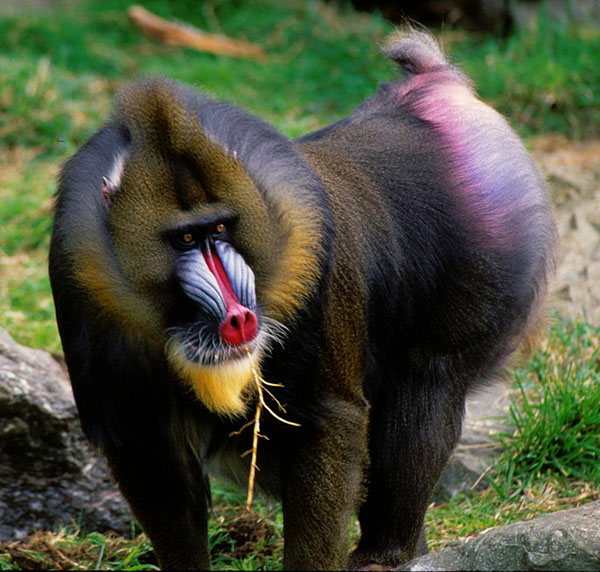Mandrill
Mandrills are the world’s largest monkeys. Once classified as baboons, the mandrill is a primate of the Old World, and was described by Darwin in his famous book ‘The Descent of Man’. He wrote – “no other member in the whole class of mammals is coloured in so extraordinary a manner as the adult male mandrill”.
Scientific Name – Mandrillus sphinx
Classification – Mandrillus
Gender Names – Male – male; Female – female; Baby – infant
Collective Noun – Troop, cartload
Length/Size – 56-81cm (22-32in)
Weight – 11.5-30kg (25-60lbs)
Top Speed – 40km/h (25mph)
Life Expectancy – 20-28 years; up to 30+ in captivity
Mating Season – July to September
Gestation Period – 175 days
Special Features – Snout is long and brightly colored, has sharp teeth
Social Structure – Live in very large, stable groups averaging around 615 individuals and reaching as many as 845
Geographical Distribution – Southern Cameroon, Gabon, Equatorial Guinea, and Congo
Natural Habitat – Tropical rainforests and occasionally grasslands
Conservation Status –Vulnerable
Diet – Fruit, Roots, Insects
Predators – Leopard, Eagles, Snakes

